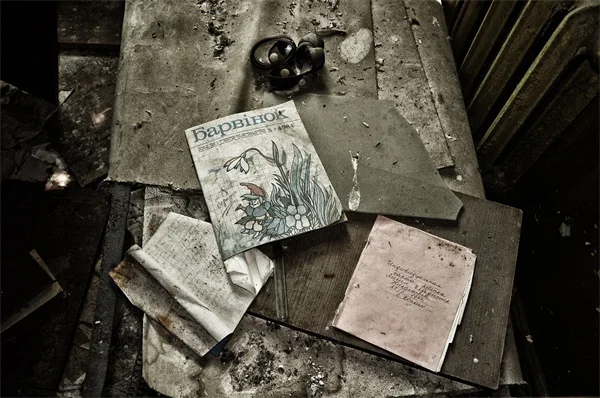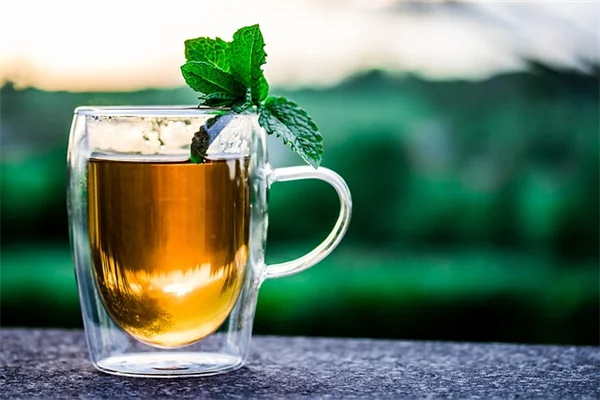Advertisement
Can low bone density increase your dementia risk? The answer is yes - research shows people with lower bone density have a 42% higher chance of developing dementia. A groundbreaking study in Neurology followed 3,651 older adults for over a decade, revealing this surprising connection between your bones and brain health.Here's why this matters for you: bone density tests could become an early warning system for dementia risk. While scientists aren't completely sure why this link exists, they've identified several possible reasons. First, both conditions become more common as we age. Second, inflammation might damage both bones and brain cells. Third, poor nutrition and inactivity - common in early dementia - also weaken bones.The good news? You can take action right now to protect both your bones and brain. Simple lifestyle changes like daily walks, strength training, and eating calcium-rich foods make a real difference. As Dr. Salinas from NYU puts it: It's never too late to improve your lifestyle factors. Whether you're 50 or 80, your future self will thank you!
E.g. :Plant-Based Muscle Building: How to Get Enough Protein Without Meat
- 1、The Surprising Link Between Your Bones and Brain Health
- 2、Breaking Down the Bone-Brain Connection
- 3、Simple Ways to Protect Both Bones and Brain
- 4、Special Considerations for Women's Health
- 5、The Hidden Conversation Between Your Skeleton and Your Mind
- 6、Sleep: The Missing Puzzle Piece
- 7、The Emotional Side of Bone Health
- 8、Technology's Role in Monitoring Both Systems
- 9、Practical Tips for Busy People
- 10、FAQs
The Surprising Link Between Your Bones and Brain Health
What the Latest Research Reveals
Guess what? Your bones might be trying to tell you something about your brain! A fascinating new study in Neurology shows that people with lower bone density have a 42% higher chance of developing dementia. We're not talking about a small difference here - that's nearly double the risk!
Researchers followed 3,651 people (average age 72) for over a decade. Here's what they found:
| Group | Number of People | Developed Dementia in 10 Years |
|---|---|---|
| Lowest bone density | 1,211 | 90 |
| Highest bone density | 1,211 | 57 |
Now, you might be wondering: "Does weak bones cause dementia?" Not exactly. The study shows they're connected, but we don't know yet if one causes the other. It's like noticing that people who carry umbrellas often get wet - the umbrella isn't causing the rain!
Why This Connection Matters for You
Here's the exciting part - bone density tests could become an early warning system for dementia risk. Imagine getting a simple scan that helps doctors catch potential brain health issues years before symptoms appear!
Dr. Salinas from NYU explains it perfectly: "It's never too late to improve your lifestyle. Even if you're seeing some memory changes, better diet and activity can still help slow things down." That's some seriously good news!
Breaking Down the Bone-Brain Connection
 Photos provided by pixabay
Photos provided by pixabay
The Aging Factor We Can't Ignore
Both bone loss and dementia become more common as we get older. But here's what's really interesting - they might share some common triggers:
Inflammation could be playing double duty, weakening both your bones and brain. Your daily habits like what you eat and how much you move might affect both systems simultaneously. And let's not forget genetics - some families seem prone to both conditions.
Think of your body like a house. If the foundation (your bones) starts crumbling, it's not surprising the upstairs (your brain) might have problems too!
The Silent Warning Signs
Bone loss is sneaky - most people don't know they have it until they break something. Dementia can be just as subtle in early stages. This makes the bone density connection extra valuable as a potential early warning sign.
Dr. Rivadeneyra puts it bluntly: "If you smoke or drink heavily, you're rolling the dice with both your bones and brain." But the good news? Many risk factors are within your control!
Simple Ways to Protect Both Bones and Brain
Move It or Lose It
Your bones love exercise almost as much as your brain does! Weight-bearing activities like walking, dancing, or light weight training do double duty:
- They stimulate bone growth to fight osteoporosis
- They increase blood flow to nourish your brain cells
Even better? You don't need to run marathons. A daily 30-minute walk can make a world of difference. As my grandma used to say, "A body in motion stays in motion!"
 Photos provided by pixabay
Photos provided by pixabay
The Aging Factor We Can't Ignore
Because they do! Some superstar nutrients for both systems:
Calcium and Vitamin D: The dynamic duo for bone health that also supports brain function. Try fatty fish, fortified milk, or eggs.
Omega-3s: Great for brain cells and may help reduce bone-damaging inflammation.
Leafy greens: Packed with vitamin K, which helps direct calcium to your bones instead of your arteries.
Here's a fun fact: The Mediterranean diet, famous for brain benefits, is also fantastic for bones. More reason to enjoy those olive oil-drenched veggies!
Special Considerations for Women's Health
Why Women Face Higher Risks
Ladies, we need to talk. After menopause, dropping estrogen levels create a perfect storm for both bone loss and dementia risk. But knowledge is power!
Dr. Devi from Lenox Hill Hospital has great advice: "Every woman over 50 should get a baseline bone density test. We have effective treatments - from medications to targeted exercises."
This brings up another important question: "Should men worry about this too?" Absolutely! While women are at higher risk, men's bones and brains need protection too. In fact, men who break hips have higher mortality rates than women.
Hormones and Healthy Aging
Estrogen isn't just for reproduction - it's like a protective shield for both bones and brain cells. When levels drop, that shield weakens. But don't panic! There are ways to compensate:
- Strength training boosts bone density at any age
- Phytoestrogens in foods like soy and flaxseed may help
- Regular social and mental activity protects cognitive function
Remember, your bones and brain are in this together. What helps one often benefits the other. So next time you're deciding between the elevator and stairs, think of it as a gift to your future self!
The Hidden Conversation Between Your Skeleton and Your Mind
 Photos provided by pixabay
Photos provided by pixabay
The Aging Factor We Can't Ignore
You know how your phone needs both hardware and software to work? Turns out your body operates similarly! While we often treat bones and brains as separate systems, they're constantly chatting through biochemical signals we're just beginning to understand.
Researchers at Columbia discovered that osteocalcin, a hormone produced by bones, actually crosses the blood-brain barrier and influences memory formation. Who knew your femur was sending memos to your hippocampus? This explains why weight-bearing exercise doesn't just build stronger bones - it might literally help you remember where you left your keys!
The Gut Microbiome Connection
Here's where things get really wild. Your gut bacteria play referee in this bone-brain conversation. Certain probiotic strains help absorb bone-building nutrients while producing compounds that reduce brain inflammation.
| Beneficial Bacteria | Bone Benefits | Brain Benefits |
|---|---|---|
| Lactobacillus | Improves calcium absorption | Reduces anxiety markers |
| Bifidobacterium | Strengthens bone density | Supports neurotransmitter production |
Ever notice how yogurt commercials brag about both digestive and immune benefits? Now we can add "might help prevent dementia and osteoporosis" to that list! Though I'd love to see the marketing team try to fit that on a yogurt lid.
Sleep: The Missing Puzzle Piece
Your Bones Regenerate While You Dream
Here's something that'll keep you up at night - or actually, it should make you sleep more! During deep sleep stages, your body releases growth hormones that repair bone tissue. Skimp on sleep, and you're shortchanging your skeleton's maintenance crew.
But wait - doesn't your brain also need sleep to consolidate memories and clear out toxins? "Could poor sleep be damaging both systems simultaneously?" Bingo! Chronic sleep deprivation creates a vicious cycle where weakened bones lead to poorer sleep quality, which then further impairs bone and brain repair. It's like forgetting to charge your phone and then wondering why the battery life keeps getting worse.
The Position Matters More Than You Think
Get this - how you sleep might affect bone health too. Side sleepers tend to have slightly higher bone density in their hips compared to back sleepers. Though before you panic about your sleeping position, remember the difference is small. The most important thing is getting those 7-9 hours consistently.
Pro tip: If you wake up feeling stiff, try placing a pillow between your knees. Your joints will thank you, and who knows - your brain might too when you're sharper all day!
The Emotional Side of Bone Health
Stress: The Silent Bone Thief
You know stress is bad for your heart, but get this - chronic stress literally leaches minerals from your bones. Cortisol, the stress hormone, interferes with bone-building cells while activating cells that break down bone tissue. Meanwhile, elevated cortisol levels shrink the hippocampus, your brain's memory center.
This explains why people going through prolonged stressful periods often report both physical aches and "brain fog." Your body's basically cannibalizing itself to deal with perceived threats. Not exactly the survival strategy we'd choose if we were thinking clearly!
Laughter Really Is the Best Medicine
Here's some good news - positive emotions have measurable benefits for both systems. Genuine laughter:
- Reduces cortisol levels (the bone-damaging stress hormone)
- Increases blood flow to the brain by 22%
- Triggers the release of endorphins that may help preserve bone density
So watching funny cat videos isn't just procrastination - it's preventive healthcare! Though maybe don't lead with that excuse when your boss catches you browsing YouTube.
Technology's Role in Monitoring Both Systems
Wearables That Do Double Duty
Your fitness tracker might be giving you more insights than you realize. Many newer models track:
- Impact forces during exercise (bone health indicator)
- Sleep quality and REM cycles (brain health indicator)
- Heart rate variability (stress levels affecting both)
While these gadgets can't replace medical tests, they provide valuable daily data. Just remember - obsessing over the numbers defeats the purpose! The goal is awareness, not perfection.
The Future of Predictive Analytics
Researchers are developing AI models that combine bone density scans with cognitive assessments to predict dementia risk years in advance. Early trials show 83% accuracy in identifying high-risk individuals who might benefit from early interventions.
Imagine getting a personalized report saying: "Based on your bone health and lifestyle, your brain age is 5 years younger than average!" Now that's the kind of vanity metric I can get behind.
Practical Tips for Busy People
Two-Minute Brain-Bone Boosters
No time for the gym? Try these sneaky strategies:
- Take calls while walking (bone benefit + creative thinking boost)
- Swap your office chair for a stability ball (engages core and improves posture)
- Keep hand weights by your TV remote (commercial breaks = mini workout sessions)
Remember - consistency beats intensity. Ten 2-minute movement breaks throughout your day add up to serious benefits without requiring massive lifestyle changes.
Kitchen Hacks for Dual Protection
Upgrade your snacks without extra effort:
- Dip baby carrots in almond butter (calcium + healthy fats)
- Sprinkle chia seeds on yogurt (omega-3s + probiotics)
- Roast kale with olive oil (vitamin K + anti-inflammatory compounds)
Your future self will look back and thank you for these small but mighty choices. Though they might be too busy remembering where they parked and dancing at their great-grandkid's wedding to send you a thank you card.
E.g. :Association of Bone Mineral Density and Dementia | Neurology
FAQs
Q: How much does low bone density increase dementia risk?
A: The study found people with the lowest bone density had nearly double the risk compared to those with high bone density - specifically a 42% increased risk after accounting for other factors. That's significant! But remember, this shows association, not causation. The researchers followed 3,651 older adults for 11 years, carefully tracking bone health and cognitive function. While we don't yet know if weak bones directly cause dementia, the connection is strong enough that doctors suggest using bone scans as potential early warning signs for brain health issues.
Q: What are the best exercises for both bone and brain health?
A: Weight-bearing exercises like walking, dancing, or light weight training are perfect double-duty activities. These workouts stimulate bone growth while increasing blood flow to nourish your brain cells. The best part? You don't need intense workouts - just 30 minutes of moderate activity daily makes a difference. As one expert told us, "Think of exercise as medicine for your future self." Combining physical activity with mental challenges (like learning dance steps) gives even greater benefits for both systems.
Q: Should women be more concerned about this bone-brain connection?
A: Yes, women face higher risks for both osteoporosis and dementia, especially after menopause when estrogen levels drop. Estrogen acts like a protective shield for bones and brain cells, so its decline creates a perfect storm. But here's the good news: women can fight back effectively. Dr. Devi recommends all women over 50 get a baseline bone density test. Treatments range from medications to targeted exercises. And lifestyle changes - like eating phytoestrogen-rich foods (soy, flaxseeds) and staying socially active - help compensate for hormonal changes.
Q: What foods help both bone density and brain function?
A: The Mediterranean diet is a superstar for both systems! Focus on these power foods: fatty fish (rich in omega-3s for your brain and vitamin D for bones), leafy greens (packed with bone-building vitamin K), and calcium-rich options like yogurt or fortified plant milks. Surprisingly, the olive oil in this diet may reduce inflammation that harms both bones and brain. As one nutritionist told us, "What's good for your heart is usually good for your bones and brain too." Simple swaps like choosing whole grains over refined carbs make a noticeable difference over time.
Q: Can improving bone density later in life still reduce dementia risk?
A: Absolutely! While starting young is ideal, research shows it's never too late to benefit. Even people already showing early cognitive decline can slow progression through better nutrition and activity. The key is consistency - daily movement and bone-friendly nutrients add up over time. As Dr. Salinas emphasized, "The sooner the better, but any positive change helps." Simple steps like taking a daily walk with a friend or adding calcium-rich foods to each meal create compound benefits for both your skeletal and cognitive health as you age.







